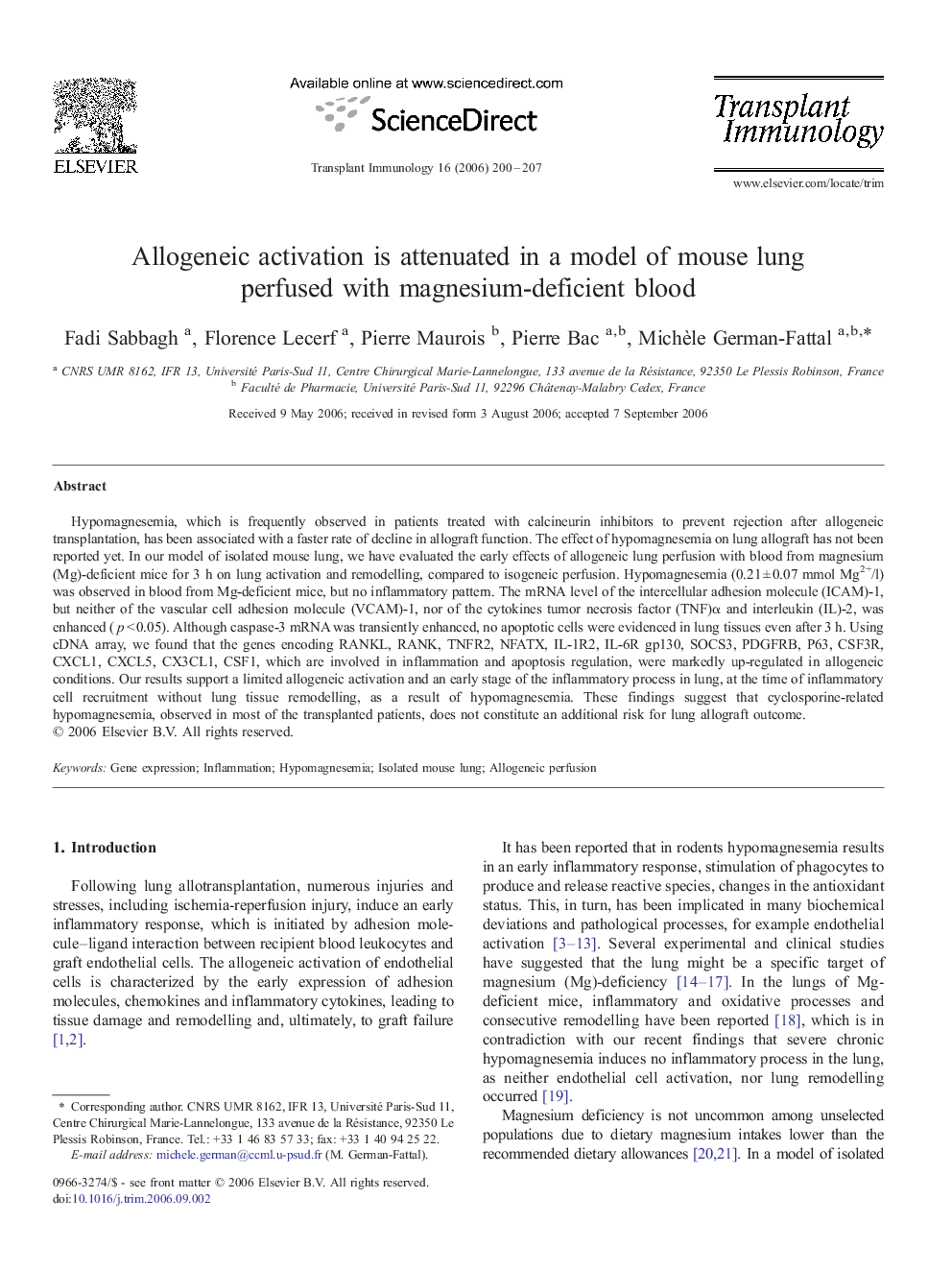| Article ID | Journal | Published Year | Pages | File Type |
|---|---|---|---|---|
| 3392596 | Transplant Immunology | 2006 | 8 Pages |
Abstract
Hypomagnesemia, which is frequently observed in patients treated with calcineurin inhibitors to prevent rejection after allogeneic transplantation, has been associated with a faster rate of decline in allograft function. The effect of hypomagnesemia on lung allograft has not been reported yet. In our model of isolated mouse lung, we have evaluated the early effects of allogeneic lung perfusion with blood from magnesium (Mg)-deficient mice for 3 h on lung activation and remodelling, compared to isogeneic perfusion. Hypomagnesemia (0.21 ± 0.07 mmol Mg2+/l) was observed in blood from Mg-deficient mice, but no inflammatory pattern. The mRNA level of the intercellular adhesion molecule (ICAM)-1, but neither of the vascular cell adhesion molecule (VCAM)-1, nor of the cytokines tumor necrosis factor (TNF)α and interleukin (IL)-2, was enhanced (p < 0.05). Although caspase-3 mRNA was transiently enhanced, no apoptotic cells were evidenced in lung tissues even after 3 h. Using cDNA array, we found that the genes encoding RANKL, RANK, TNFR2, NFATX, IL-1R2, IL-6R gp130, SOCS3, PDGFRB, P63, CSF3R, CXCL1, CXCL5, CX3CL1, CSF1, which are involved in inflammation and apoptosis regulation, were markedly up-regulated in allogeneic conditions. Our results support a limited allogeneic activation and an early stage of the inflammatory process in lung, at the time of inflammatory cell recruitment without lung tissue remodelling, as a result of hypomagnesemia. These findings suggest that cyclosporine-related hypomagnesemia, observed in most of the transplanted patients, does not constitute an additional risk for lung allograft outcome.
Related Topics
Life Sciences
Immunology and Microbiology
Immunology
Authors
Fadi Sabbagh, Florence Lecerf, Pierre Maurois, Pierre Bac, Michèle German-Fattal,
